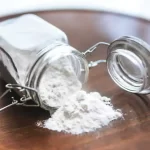Ditch Plastic Utensils for a Healthier, Happier You
In the whirlwind of our daily lives, cooking utensils often take a back seat to fancy cookware and appliances. But what if I told you that those seemingly insignificant plastic spatulas and stirring spoons could be silently wreaking havoc on your health? It’s time to toss out your plastic utensils immediately and make room for a safer, healthier alternative. Today, we’ll dive deep into the world of cooking utensils and explore why choosing the right material for these seemingly small tools is just as crucial as selecting the perfect pots and pans. Prepare to be enlightened as we uncover the shocking truth about how plastic utensils may be causing harm to your liver and thyroid.
Join us on this journey to healthier cooking habits and discover why making the switch to safer utensils is not only essential for your well-being but also for the well-being of your loved ones. Say goodbye to those toxic plastic utensils and say hello to a happier, healthier you. Now, let’s embark on this eye-opening journey together and uncover the hidden dangers lurking in your kitchen. We’ll reveal the stealthy culprits that might be compromising your health and delve into the heat-activated menace of plastic utensils. Stick around, as we arm you with the knowledge you need to make informed choices for a healthier lifestyle.
The Silent Threat of Plastic Utensils
Plastic utensils, those seemingly innocuous tools we use daily in our kitchens, carry a hidden menace that may be endangering our well-being. Let’s unveil the dangers lurking behind the convenience of plastic utensils. Plastic utensils have been found to leach harmful chemicals into our food, as reported by the German Federal Institute for Risk Assessment. This is particularly concerning for children and infants, whose developing bodies are more susceptible to the adverse effects of these toxins. When exposed to heat exceeding 70°C (158°F), plastic utensils release toxic byproducts called oligomers. These minuscule troublemakers, formed during the plastic production process, can silently infiltrate our meals. The potential health implications of these oligomers are a cause for concern and will be explored further in this article.
Additionally, many plastic cooking utensils are coated with bromine, a component found in brominated flame retardants. We’ll delve into how these flame retardants can accumulate in our bodies, disrupt hormonal balance, and pose potential risks to our reproductive systems and overall health. Furthermore, it’s essential to recognize that our daily exposure to plastic utensils goes beyond just meal preparation. These utensils contribute to a larger environmental crisis by adding to the problem of plastic waste. In the next section, we’ll take a closer look at the environmental impact of plastic utensils and how your choices can make a significant difference. Let’s unravel the unsettling truth about plastic utensils and arm ourselves with knowledge to make informed choices for a healthier lifestyle.
The Environmental Impact of Plastic Utensils
Beyond their health concerns, plastic utensils also contribute to a larger environmental crisis by adding to the problem of plastic waste. It’s essential to recognize that our daily exposure to plastic utensils has far-reaching consequences. The production, distribution, and disposal of plastic utensils result in a significant carbon footprint. The petroleum-based materials used in plastic utensils contribute to greenhouse gas emissions, further exacerbating climate change. Moreover, the energy-intensive manufacturing process required for these utensils consumes vast amounts of resources.
Once these plastic utensils have served their purpose, they typically end up in landfills, where they can take hundreds of years to decompose fully. In the meantime, they clog our landfills and harm wildlife. These utensils are often lightweight and easily carried by the wind, leading to litter in our streets, parks, and waterways. Switching to alternative utensils made from eco-friendly materials like bamboo or stainless steel can significantly reduce your environmental impact. In the following sections, we will explore these sustainable alternatives and provide practical tips on making the transition to a more eco-conscious kitchen. Let’s not only prioritize our health but also the health of our planet by making responsible choices regarding the utensils we use.
Embrace Sustainable Alternatives
As we’ve uncovered the hidden dangers and environmental impact of plastic utensils, it’s time to explore the healthier and more eco-conscious alternatives that can replace them.
Bamboo Utensils: Bamboo is a fantastic alternative to plastic. It’s lightweight, durable, and biodegradable. Bamboo utensils come in various styles, from spatulas to forks and spoons, making them a versatile choice for your kitchen.
Stainless Steel Utensils: Stainless steel utensils are not only sleek and modern but also durable and long-lasting. They can withstand high temperatures without releasing harmful chemicals into your food. Investing in a quality set of stainless steel utensils is a smart move for both your health and the environment.
Wooden Utensils: Wooden utensils are another eco-friendly option. They don’t conduct heat as much as metal utensils, making them ideal for use in non-stick cookware. Choose utensils made from sustainably sourced wood to ensure minimal environmental impact.
Silicone Utensils: If you prefer a softer touch, silicone utensils are an excellent choice. They are heat-resistant, non-toxic, and gentle on your cookware. Look for food-grade silicone utensils to ensure their safety for cooking.
Hybrid Utensils: Some utensils combine materials like bamboo handles with stainless steel heads, offering the best of both worlds. These hybrids provide the durability of metal and the eco-friendliness of bamboo.
Making the switch to these sustainable alternatives not only benefits your health but also contributes to reducing plastic waste. By choosing utensils that are kinder to both you and the environment, you’re taking a significant step toward a healthier, more eco-conscious lifestyle.
Tips for a Seamless Transition to Healthier Utensils
Now that we’ve explored the benefits of switching to eco-friendly utensils, it’s time to make this transition smooth and effortless. Here are some practical tips to help you embrace healthier utensils in your kitchen:
Gradual Replacement: You don’t need to replace all your utensils at once. Begin by replacing a few items with eco-friendly alternatives, and gradually phase out your plastic utensils over time. This approach is budget-friendly and reduces waste.
Research Brands: When shopping for sustainable utensils, do some research on brands known for their commitment to eco-friendly and non-toxic materials. Look for certifications like BPA-free or food-grade silicone to ensure the safety of your utensils.
Reuse and Repurpose: Before discarding your old plastic utensils, consider repurposing them for non-cooking tasks. They can be handy for gardening, cleaning, or arts and crafts. Reusing them reduces waste and maximizes their lifespan.
Proper Storage: Store your new utensils properly to prolong their life. Bamboo and wooden utensils benefit from occasional oiling to prevent drying and cracking. Stainless steel utensils should be kept dry to prevent rust.
Educate Your Household: Ensure that everyone in your household is aware of the switch to eco-friendly utensils and understands the reasons behind it. Encourage their active participation in maintaining these utensils.
Eco-Friendly Cleaning: Complement your eco-conscious utensils with environmentally friendly cleaning products. This holistic approach ensures that your entire kitchen is aligned with your health and environmental goals.
By implementing these tips, you can seamlessly integrate healthier utensils into your daily cooking routine and contribute to a safer and more sustainable kitchen.
The Health Benefits of Using Safer Utensils
Switching to safer utensils isn’t just about reducing health risks; it also offers several direct health benefits.
Choosing utensils made from materials like bamboo, stainless steel, or wood reduces your exposure to harmful chemicals such as BPA, phthalates, and oligomers. These chemicals, found in plastic utensils, have been linked to disruptions in hormonal balance, which can lead to various health issues. By making the switch to safer alternatives, you are taking a proactive step towards maintaining your well-being and that of your loved ones.
Eco-friendly utensils like bamboo and stainless steel tend to be more heat-resistant and durable. This not only ensures their longevity but also enhances your overall cooking experience. You can confidently use them in high-temperature cooking without worrying about toxic substances leaching into your food. Additionally, the sturdiness of these utensils means less wear and tear over time, resulting in fewer replacements. This not only saves you money but also reduces waste, aligning your choices with a sustainable and health-conscious lifestyle.
Moreover, by embracing utensils made from renewable and non-toxic materials, you contribute to a healthier planet. Sustainable practices, such as using bamboo or stainless steel, often require fewer resources and have a lower environmental footprint. This conservation of energy and resources benefits not only your immediate environment but also the global ecosystem. Your conscious choice to prioritize health and sustainability in your kitchen sends a powerful message, encouraging responsible production and consumption practices.
Sustainable Utensils in Practice
Now that we understand the health benefits and environmental impact of using safer utensils, let’s explore how to seamlessly incorporate them into your daily life.
Gradual Transition: Begin by identifying the plastic utensils you use most frequently and replace them with sustainable alternatives. This gradual approach makes the transition more manageable and budget-friendly.
Experiment with Different Materials: Bamboo, stainless steel, and wood are popular options, but don’t hesitate to experiment with various materials to find what suits your cooking style best. Each material has unique qualities and advantages.
Proper Care and Maintenance: To maximize the lifespan of your new utensils, it’s essential to take good care of them. Some may require occasional oiling or handwashing to prevent deterioration. Follow the care instructions provided to ensure longevity.
Educate Your Household: Ensure that everyone in your household understands the importance of the switch to eco-friendly utensils. Encourage them to embrace the change and actively participate in maintaining these utensils.
Dispose of Old Utensils Responsibly: If you’re phasing out plastic utensils, consider recycling them if possible. Some communities have specific recycling programs for plastics. If not, aim to dispose of them responsibly to minimize their environmental impact.
Share Your Journey: Share your experience with friends and family. Discussing the positive impact of using sustainable utensils can inspire others to make similar changes in their kitchens, contributing to a more environmentally aware community.
By implementing these practical steps, you can smoothly integrate sustainable utensils into your daily cooking routine. These utensils not only enhance your health but also align your choices with a more eco-conscious lifestyle.
Embrace a Healthier, Eco-Friendly Kitchen
In the course of this article, we’ve delved deep into the world of cooking utensils and uncovered the hidden dangers and environmental impact of plastic utensils. From the leaching of harmful chemicals into your food to the release of toxic byproducts when exposed to heat, these seemingly innocuous tools have far-reaching consequences for your health and the planet. However, armed with knowledge and the desire for a healthier lifestyle, you have the power to make a significant change. By swapping out your plastic utensils for safer, eco-friendly alternatives, you not only reduce your exposure to toxins but also take a substantial step towards a more sustainable future.
Choosing utensils made from materials like bamboo, stainless steel, or wood offers you a range of benefits, from enhanced durability and better cooking experiences to reduced long-term costs. It’s a small change that can have a profound impact on your well-being and the environment. As you make this transition, remember that it doesn’t have to be sudden or overwhelming. Take it one step at a time, gradually replacing your plastic utensils with sustainable alternatives. Explore the diverse options available, experiment with different materials, and find what works best for you. Proper care and maintenance will ensure the longevity of your new utensils, making this investment not only health-conscious but also cost-effective.
Educate your household about the importance of this change, and together, you can create a kitchen that prioritizes health and sustainability. Your actions extend beyond the boundaries of your kitchen. They send a message to companies and communities alike, encouraging responsible production and consumption practices. By sharing your journey with others, you inspire a collective movement towards a more environmentally aware society. In closing, as you bid farewell to those plastic utensils, you’re saying hello to a healthier, happier you and contributing to a healthier planet. Embrace the transformation of your kitchen, embrace a healthier, eco-friendly lifestyle, and make every meal a conscious act of well-being and sustainability.
The post Ditch Plastic Utensils for a Healthier, Happier You appeared first on Healthy Holistic Living.
Related posts:
 Eco-Friendly Innovation: How a Mexican Company Transforms Avocado Seeds into Biodegradable Plastic
Eco-Friendly Innovation: How a Mexican Company Transforms Avocado Seeds into Biodegradable Plastic
 Discovering the Two Faces of Baking Soda: A Kitchen Staple Reexamined
Discovering the Two Faces of Baking Soda: A Kitchen Staple Reexamined
 Earth’s Expiry Date Revealed: NASA’s Revelation About Earth’s Fate
Earth’s Expiry Date Revealed: NASA’s Revelation About Earth’s Fate
 How To Use Limes Or Lemons and Cloves To Repel Mosquitoes All Summer Long (Without The Harmful Cancerous Chemicals in Off Spray)
How To Use Limes Or Lemons and Cloves To Repel Mosquitoes All Summer Long (Without The Harmful Cancerous Chemicals in Off Spray)
 The Liver’s Nemesis: Unveiling the Most Harmful Protein You Must Avoid
The Liver’s Nemesis: Unveiling the Most Harmful Protein You Must Avoid
Powered by YARPP.







